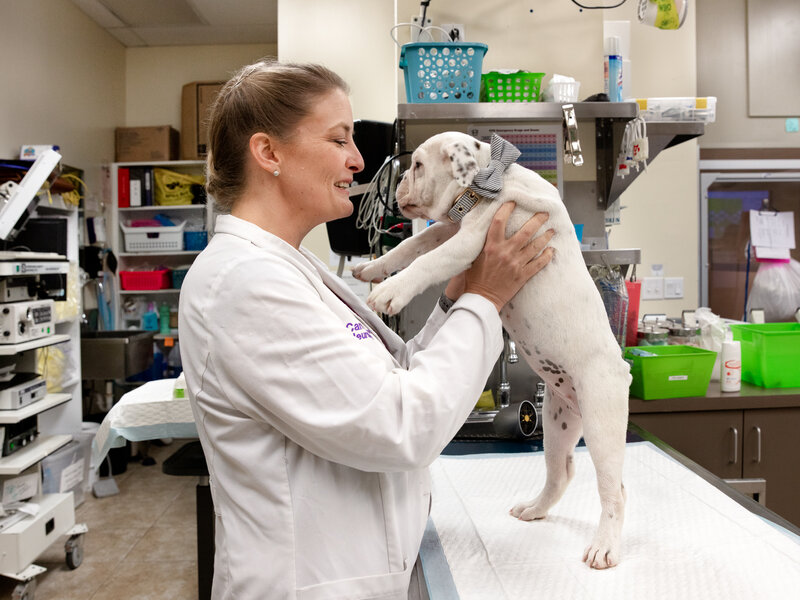I will Tell You a Secret: 'Veterinarians Are Killing Themselves' But There is Help!

Dr. Carrie Jurney is on the board of an online organization that works to prevent suicides. It's called Not One More Vet.
This isn't a mental health support group for veterans — it's for veterinarians.
Veterinarians are killing themselves in alarming numbers. The Centers for Disease Control and Prevention found male vets are 2.1 times as likely and female vets 3.5 times as likely to die by suicide compared with the general population. The much higher rate for women is especially concerning as more than 60% of vets are women.
"I had 86 people in my vet school class," Jurney says. "Graduating class of 2005. Three of them are gone. Died by their own hand."

There's a lot of stress in being a vet. First, there's the financial pressure to pay off a pricey medical school education — recent graduates are often more than $140,000 in debt. And the median pay for a veterinarian in the United States is about $94,000 a year, which is good, but less than half of that for physicians and surgeons.
Then there's the emotional strain. Any given day in a veterinary clinic can swing between scenes of elation and anxiety.
That was evident on a visit to Jurney's clinic in San Jose, Calif., last month.
A couple bring in their huge Rottweiler to see Jurney. Reuben weighs 113 pounds. The previous night, he suddenly couldn't walk.

Jurney and her staff have to put their arms around Reuben to lift him up to be examined. The big brown dog's eyes seem to grow wide and bewildered.
"I always say one of the great ironies of my career is I got into this because I love animals so much," she says. But "there are not a lot of animals that are ever excited to see me anymore. You know they are often in pain and scared. And then we're doing weird things that they didn't get to consent to. And ... especially in an emergency hospital like ours, there's not a lot of choices You still have to get it done."
Reuben has an MRI. Jurney sees knots on his spine that might block his movement and orders immediate surgery.
She uses a drill to slice through the huge dog's flesh and muscle and see what's pressing on Reuben's spinal cord.
Through a mist of bone and blood, Jurney sees small bits in Reuben's spine that have hardened around nerves.
The surgery takes more than an hour: lots of blood, bone and hot bright lights. But Jurney smiles as she slips down her surgical mask to phone the couple she calls Reuben's dads.
This time, it's good news.
"Hi, it's Dr. Jurney calling. We're all done, your baby's waking up," she tells the owners. "They were chronic discs. So those have been there for a while and I think they just scooched out just a little bit more. ... So we made things way way better than when we started. So I think we did what we needed to do tonight."
Isolation, introversion

"Hey, Scott. I thought I should let you know we lost Reuben today. He had a lung problem — a complication of his genetic problem combined with surgery. I have to be honest — this is gut-wrenching. You came to us to see why the job is hard, and there is no better example than this. I am devastated. I've cried through many moments of my mother in law's birthday dinner tonight because my mind is with Reuben and his poor owners. I wonder if there is anything I could have done differently. Even though I know I did everything I could for him, I still wonder if I could have done more."
Comments